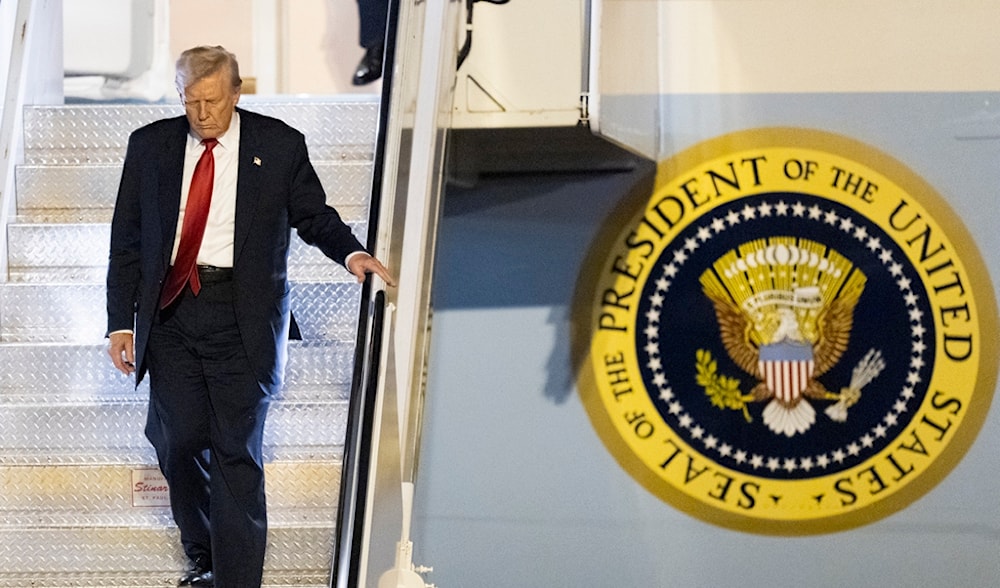Judge blocks Trump’s use of 1798 wartime law for deportations
Donald Trump has justified the use of the 18th century wartime deportation law by labeling the Venezuelan immigrants as part of a terrorist organization.
-

President Donald Trump arrives on Air Force One at Palm Beach International Airport, Friday, March 14, 2025, in West Palm Beach, Fla. (AP)
US President Donald Trump has invoked the Alien Enemies Act of 1798 to deport five Venezuelan nationals, marking a controversial use of a wartime law in peacetime.
His administration justified the move on Saturday by labeling Venezuela’s Tren de Aragua gang a “Foreign Terrorist Organization” that has “unlawfully infiltrated the United States and are conducting irregular warfare.”
Civil liberties groups, including the American Civil Liberties Union (ACLU) and Democracy Forward, challenged the legality of this action, arguing that the act has historically been used only during wars, such as the War of 1812 and World Wars I and II.
The ACLU warned that Trump was attempting to “sidestep immigration law” to enable mass deportations without legal review.
Just hours after Trump's order, and in response to the organizations' lawsuit, a federal judge swiftly intervened, issuing a temporary restraining order to halt the deportations.
Judge James Boasberg stated that the order was necessary to “maintain the status quo until a hearing can be set.” The lawsuit also criticized the administration’s broad interpretation of the act, arguing that Venezuela “is not at war with the United States.”
Trump has long framed migration as an “invasion” and hinted at invoking this law in his inaugural address, where he vowed to use federal power to expel “foreign gangs and criminal networks.”
Critics argue the move is part of a broader effort to cast immigrants as threats, with United We Dream’s Juliana Macedo do Nascimento calling it “extremely horrifying” and warning that it builds a narrative that labels immigrants as terrorists.
The hazards of such laws also entail the mass deportation of immigrants without proper hearings, whereby they would be prosecuted by wartime authority rather than immigration law.
The Act can also greenlight the expulsion of immigrants based on nationality and country of ancestry. This includes natives who have revoked their primary citizenship to acquire legal residency in the United States.
While campaigning, Trump introduced an administration with strong immigration hardliners, appointing former Immigration and Customs Enforcement (ICE) acting chief Tom Homan as his "border czar".
The 78-year-old Republican businessman has promised to initiate the largest deportation effort in US history starting on his first day in office, targeting undocumented immigrants, with the use of military force if necessary.

 3 Min Read
3 Min Read









